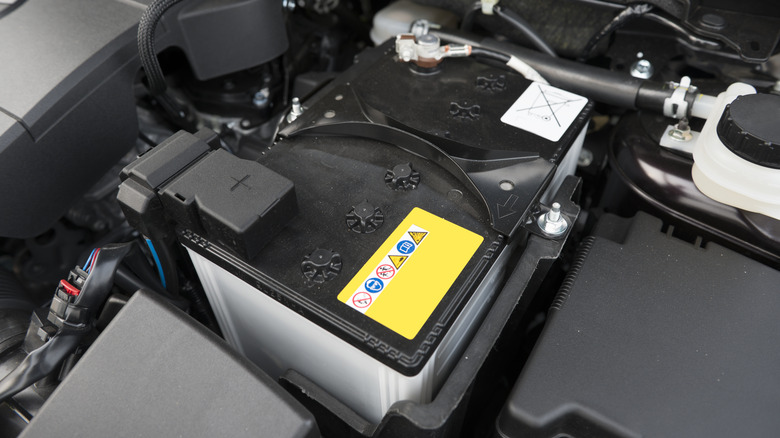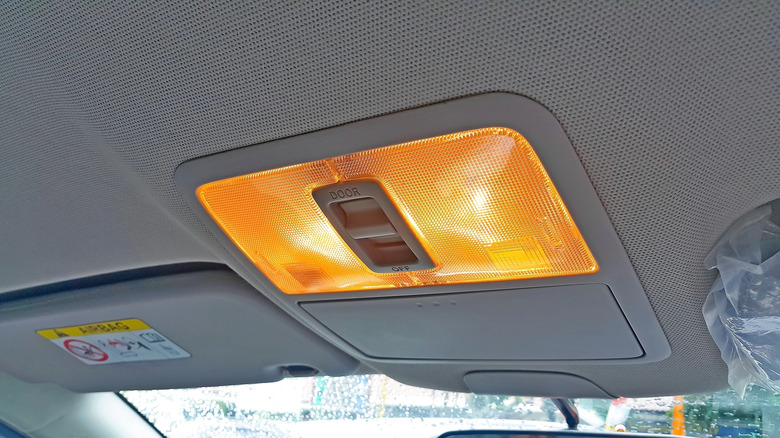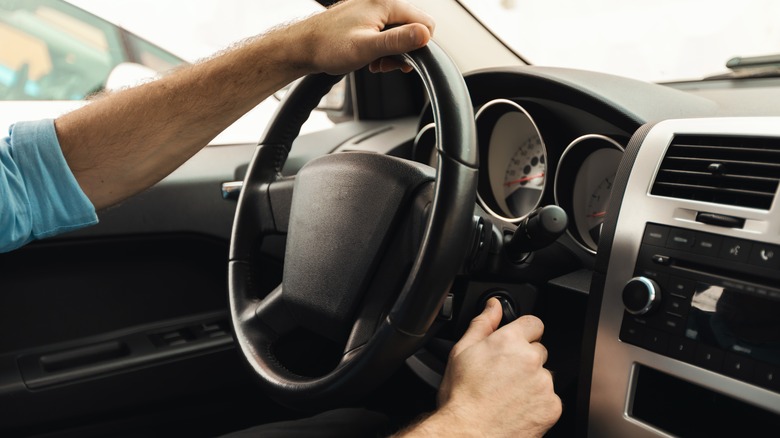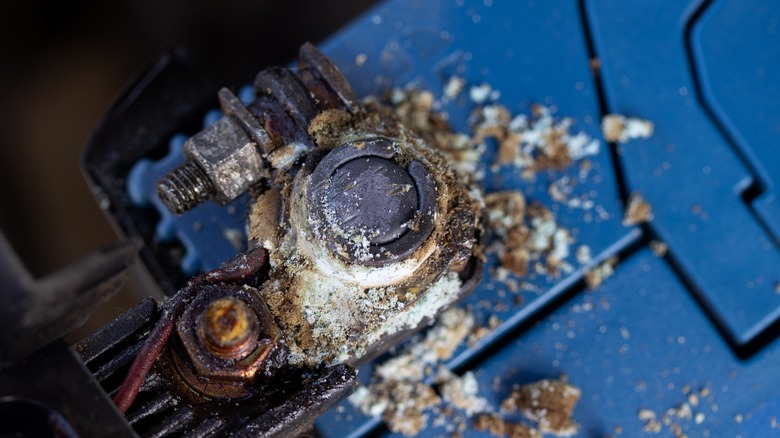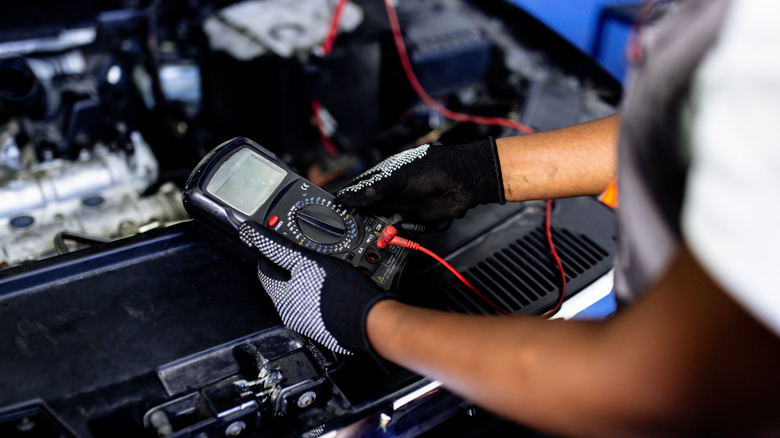3 Ways To Tell If Your Car Battery Is Dead
Even before cars were primarily powered by electricity, batteries have been a vital automotive part, working alongside the gas-powered engine. Thanks to your car's battery, you have essential features like cabin lights and signals, not to mention nifty accessories like infotainment systems. Unfortunately, much like smaller, traditional batteries, automotive batteries can fail on occasion, leaving you in the lurch.
The tricky thing about this problem is that, unlike your gas tank being empty, your car doesn't have any overt ways of warning you of battery problems. After all, it's the battery that powers those signals, so if something's wrong with it, you won't get a little LED on the dashboard telling you (or any LEDs, really). But while there aren't any in-your-face signals of battery failure, there are some signs and hints in your car's function and behavior that you can check for that might prompt you to pop the hood.
Dim or flickering lights
The most obvious thing in your car that the battery holds dominion over are the internal and external lights. It's the battery's job to handle all lighting-related matters, including both the cabin lights and the headlights. Ergo, a problem with either of those lights is one of the first things you should be on the lookout for.
When you open your car, particularly when it's dark out, the cabin lights usually turn on in full force, and depending on your car's make and model, they may be accompanied by a door-opening chime. If you open your door and the lights don't turn on at all or are flickering, and if there's no door chime playing, that's a good sign that there's an electrical problem. The same goes for your headlights – if the beams seem dimmer than they should, even with the high beams on, something is inhibiting the flow of power.
Poor engine turnover
While gasoline is the stuff that powers your engine, it's your battery's job to actually put the process in motion. When you turn the ignition key, that activates the starter motor, powered by your battery, which in turn gets the actual motor chugging along. If you can't get your engine to turn over, though, that doesn't just mean a problem with the engine or low fuel. The battery may not be activating the starter properly.
When you turn on your car, does it seem like it takes longer than usual for the engine to turn over? Does the engine turn on but then turn back off almost immediately? Or is the engine completely unresponsive? In any of these cases, a dead battery is a potential culprit. Incidentally, this particular situation is why it's wise to carry jumper cables in your trunk. Hopefully, you know how to use them, or that car isn't going anywhere.
Weird smells and corrosion
Maybe everything seems status quo inside the car, but you can't help the feeling that something is out of order. In this situation, pop the hood and take a look at the battery. If there's something wrong with the battery, there are several kinds of physical evidence you may see that could indicate a problem. Let us stress this here: only look at the battery. Do not touch it, whether with your hands or some kind of poking implement. If there is something physically wrong with the battery, it could be dangerous to randomly futz with it.
So, what are the physical signs you should be on the lookout for? There are three obvious warning signs you should be on the hunt for. First, any unusual smells coming from your battery, especially a rotten egg, sulfur-y smell. That's hydrogen sulfide – don't put your face in it, it's toxic. Second, flaky, blue-green powder on the battery's connectors. That's corrosion caused by leaky battery acid. Finally, obvious physical deformities. If your battery looks like it's expanding or inflating, that is definitely a bad sign.
What should you do?
So, you're pretty sure that your battery is toast. What are you supposed to do now? The one thing you absolutely should not do is try to fix it yourself. Car batteries are very sensitive pieces of equipment, and heedlessly tampering with them could result in damage to the car, personal injury, or worse. It's also possible that, even if your vehicle is exhibiting unusual problems, the cause isn't actually in the battery but somewhere else.
As such, the first and best course of action is to bring your car to your local automotive mechanic or auto parts store and have them run some tests. A professional mechanic can test the battery for electrical output and defects to give you the definitive word on where the problem is. More importantly, they can do so in a safe environment without risking further damage to your car. Or to you.
